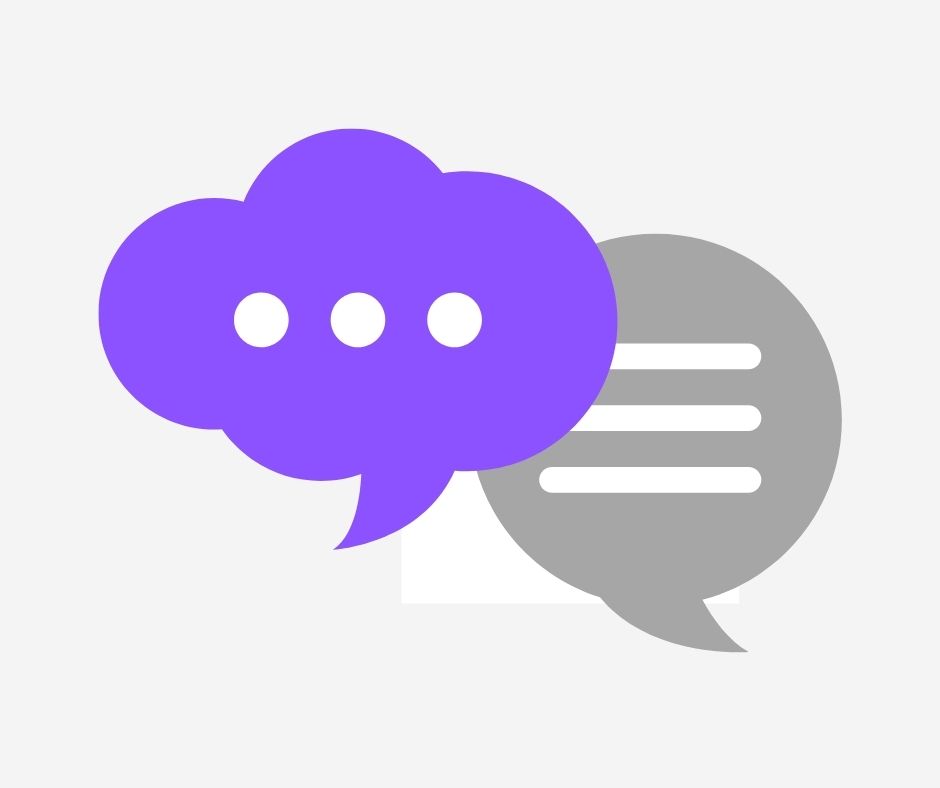3 Keys to Writing Your Next Blog
How to write blogs of value and purpose.
Not long ago, blogs were not a hot topic and few people talked about them. Today, however, they are widely discussed and highly recommended as not only a useful marketing tool but also as a way to stay connected to and build rapport with our audience.
The fact I’m writing this blog and you’re reading it is proof of this reality. You may wonder, however, why you should write blogs and why blogs are important to your business growth or the development of your audience in another capacity.
Perhaps you’ve questioned those who have repeatedly preached about the value of writing blog articles and the idea you should be writing more of them. Perhaps you have also wondered how to actually write blog articles and have struggled with consistently putting valuable content marketing out there for your audience.

Today I’ll discuss 3 key ways that can help you with this. I will explain the value of maintaining a blog, help you develop a simple approach to choosing blog content, and cheer you on so you can reap the benefits of sharing your knowledge and experience with others.
1. Know your audience. Without first knowing who you are writing for (or “talking” to) it’s hard to know what you should say. The importance of knowing your audience is sometimes overlooked because some of those who advocate blog writing might accidentally assume you already know who your audience is.
Additionally, even if you feel you know who you are writing for, it can still be valuable to sit back now and then and re-evaluate who your audience is (and is not). It may evolve over time or become broader or narrower as you grow and expand your niche, and that’s okay. That’s quite normal, actually.
To help you discover who your audience is, ask yourself things like:
- What individuals am I most passionate about reaching with my message?
- Who do I believe would most benefit from my message?
- What am I trying to help my audience with by sharing my message?
These questions can assist you in identifying your audience and thereby knowing whether or not the topics you have in mind will truly benefit them. The more you get to know your audience, the easier it becomes to brainstorm topics to write about.
2. Provide valuable content. This may seem a bit obscure and confusing, but think about it like this. Once you know who your audience is, choosing content that can positively impact your readers becomes quite simple.
Here’s an example: Jane owns a doggie day care. Her clients are dog owners who value her services and consistently send her referrals. In an effort to keep her current clients up to date with her growing business and to inform potential clients about the services she provides, Jane starts a blog.
It would not be unreasonable for Jane to assume her audience is any and all pet owners. She could thereby rationally conclude that she would hit the interests and needs of her target audience by merely writing blog topics related to general pet care and the ways her doggie day care can benefit any and all pet owners.
To verify whether or not this assumption is true, Jane can ask herself the questions above. This will help her determine if her audience is in fact who she thinks it is and if her topics of choice bring the most value to them.
When she digs deep, we see that her audience is actually narrower and more specific than “any and all pet owners” initially suggests:
- What individuals am I most passionate about reaching with my message?
- Dog owners
- Individuals interested in getting a dog
- Dog owners seeking information about what to look for in safe doggie day care options
- Dog owners seeking guidance on finding doggie day care options that work best for them and their work schedule
- Who do I believe would most benefit from my message?
- Dog owners who travel a lot
- Dog owners trying to navigate the landscape of safe and healthy doggie day care options
- Dog owners who deal with separation anxiety
- Dog owners who do not have family or friends available to pet sit
- What am I trying to help my audience with by sharing my message?
- Emphasize the importance of a healthy and safe doggie day care environment for their pet
- Spotlight the positive impact a healthy and safe environment can have on their pet’s emotional wellbeing during their absence
- Give dog owners the assurance they want in knowing their pet is in a loving environment
By dialing in the focus of her blog topics, Jane can positively influence her target audience to a higher degree because her approach applies directly to them rather than indirectly.
Her audience will thereby increase their trust in her business model, appreciate her vision as the owner of a doggie day care, and value her passion to provide reliable services to them and their pets.
3. Share your experience. Whoever your audience is, you are in a position of influence. Using this stance to both expand your touch and increase your impact on the world around you is powerful and empowering.
It does not end there, however. Providing your audience with valuable content is only one step in the process of connecting, cultivating rapport, and building a community of those who share your passion.
This next step not only increases your credibility but also makes you approachable and relatable. Being able to share a personal experience about your blog topic is a powerful way for you to bolster your uniqueness, your individual perspectives, and, perhaps most importantly, the comradery all humans appreciate.
I’ll give you an example of this by sharing an experience I had with blog writing so you can see how this demonstrates to your readers that you’ve been there, done that, and have struggled with the common challenges related to your blog topic.
For almost fourteen years now, I have been providing a variety of writing and editing services to writers. At first, it was something I simply enjoyed doing and I helped family, friends, and a few referrals tackle their writing projects on a strictly “freelance” basis.
At the time I would have told you I helped people write and that I edited anything and everything as merely a hobby.
As my client base began to grow and I eventually decided to get an LLC and start my own book writing and editing coaching business, however, I started hearing about all these other business owners who wrote their own blogs, guest blogged on a regular basis, participated in various writing groups, etc.
I didn’t think I had time for “that,” nor did I see the value of it. Even though I had been writing since I was in grade school and had even been published a few times, I believed the lie I didn’t know enough to write about anything that could help others and subsequently grow my business brand.
The first time I did guest blog, however, resulted in a few things: a couple new clients over time, a few new followers on my social media pages, more self-confidence in my knowledge and experience, new connections with other writers, and new networking opportunities with other business owners.

The thing I learned was that sharing what you know, who you are, and what you do is a very simple way for you to get “out there” and position yourself as an expert in your niche. Someone who is ready and willing to help those in need of your services, and someone others who are passionate about your niche can relate to and interact with.
You won’t get a new client every time you post, of course, but you will gain the trust of your audience (and prospective clients) by being yourself and discussing what you know and love.
As a writer, author, business owner, animal lover, DIY project doer, crafter, reader, gardener, traveler, history geek, and so on, I love learning from others and hearing about their personal experience with these things and other topics I might not even be familiar with.
We all have a unique approach based on our personal journey through life. Sharing a bit about you and your experiences as they relate to your blog topic can make a huge difference.
It could mean the difference between a prospective client walking away with the thought of, “Hmm, that’s an interesting topic.” and the thought of, “Wow, they really helped me see the value of this topic and I can totally relate to their perspective/experience.”
The other thing sharing your personal experiences does is makes your readers want to come back for more. Perhaps you shared a funny story associated with your blog topic or an “Ah-ha” moment that really helped someone.
Those things keep your readers intrigued and curious. As well, your reader is much more likely to tell a friend or colleague about you and your blog if you had a positive impact on them!
While maintaining a blog may seem like a chore at first, you can avoid the overwhelm by simply viewing blogging as another marketing tool.
If you look at it as a way for you to connect with your current audience—and future clients—versus a fatiguing task that will take your valuable time without cultivating positive results, determining your audience and writing to it will be that much easier.
Blogs are about sharing your journey, your vision, and your passion. They are an easy way for you to step up and provide value to others.
So, get blogging! And happy writing and happy connecting! Click here to download a Blog Writing Worksheet to help you with your blog writing journey.
Please feel free to contact me with any questions or to share the ways writing blog articles has helped you create positive change in the world around you by engaging with your audience.